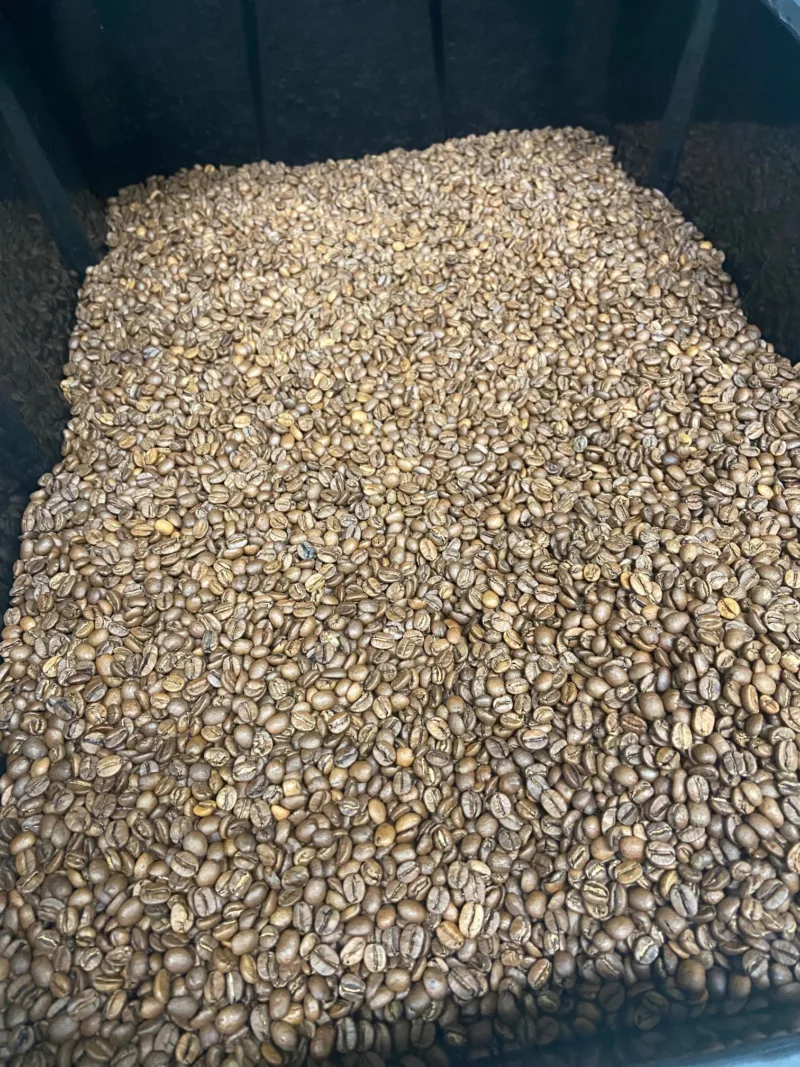Coffee degassing is a process that occurs after coffee beans have been roasted. When coffee beans are roasted, they go through a series of chemical changes that produce carbon dioxide gas as a byproduct. This gas becomes trapped within the beans, creating pressure inside the coffee bean structure. Here’s why coffee needs to degas:

Freshness: Freshly roasted coffee contains a significant amount of carbon dioxide, and it needs time to release this gas. If coffee is brewed immediately after roasting, the excess gas can negatively impact the flavor and aroma of the coffee. The presence of excess carbon dioxide can create astringency and off-flavors in the brew, making the coffee taste less pleasant.
Consistency: Coffee flavor profiles change as it degasses. For specialty coffee, allowing the beans to degas ensures a more consistent and controlled brewing process. Coffee professionals often wait for beans to degas to reach their peak flavor, and they adjust grind size, brewing methods, and parameters accordingly.
Crema in Espresso: In espresso brewing, the presence of carbon dioxide is essential for creating crema, the frothy layer on top of the espresso. However, if the coffee is too fresh and not allowed to degas, the crema can be unstable and less desirable. Espresso is usually brewed with coffee that has degassed to a certain extent to achieve the desired crema quality.
Off-Gassing: Allowing coffee to degas also prevents the possibility of off-gassing during storage. If coffee is sealed in an airtight container immediately after roasting without proper degassing, the accumulated gas can cause the container to burst or lead to other packaging issues.
Extraction: Degassing affects the brewing process. Freshly roasted coffee with excessive carbon dioxide can interfere with water extraction during brewing, which can result in uneven and unpredictable flavor extraction.
The duration of degassing depends on several factors, including the roast level, bean type, and individual coffee roaster preferences. Coffee typically reaches its peak flavor a few days to a few weeks after roasting, and the rate of degassing varies during this period. To preserve the freshness and flavor of coffee, it is often recommended to wait a few days to a week after roasting before brewing. Proper storage in airtight containers can also help maintain coffee quality as it continues to degas over time.
